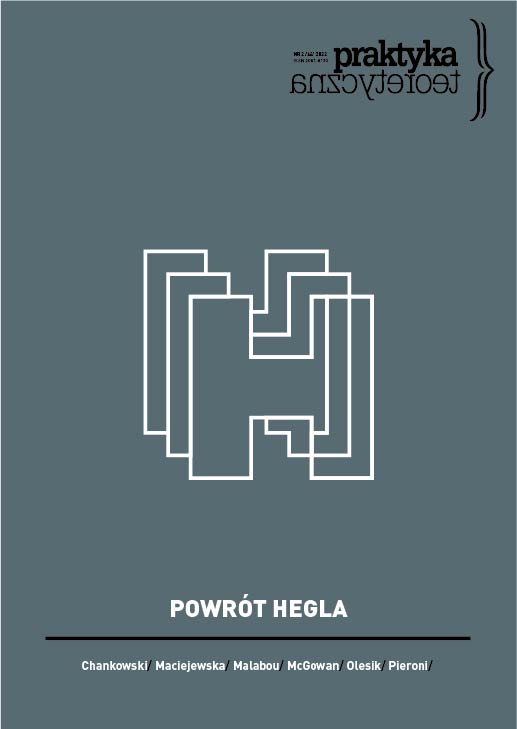

Articles

What role does the body play in the subject’s formation and in interpersonal exchanges? Does the body merely perform an instrumental function, or can it claim to be a subject of freedom? Thinking of the body within the framework of intersubjectivity requires reassessing the bulk of the philosophical Western tradition. Form the first-person’s perspective endorsed by this tradition, the exteriority of the body has been reduced to a weakness of human nature. Starting from Hegel’s account of the soul-body relation, as presented in the Anthropology, as well as some interpretations of “Lordship and Bondage” on the role of the body in self-doubling (Butler, Malabou, McDowell, Stekeler-Weithofer), I argue that embodiment is a process of (inter)subjectivation. Thematizing the predicative structure of corporeality, Hegel turns the constitutive exteriority of the human body into a potentiality of openness. Hence, Hegel’s dialectic of immediacy and mediation leads to thinking of the body’s universality in opposition to a monadic conception of subjectivity.